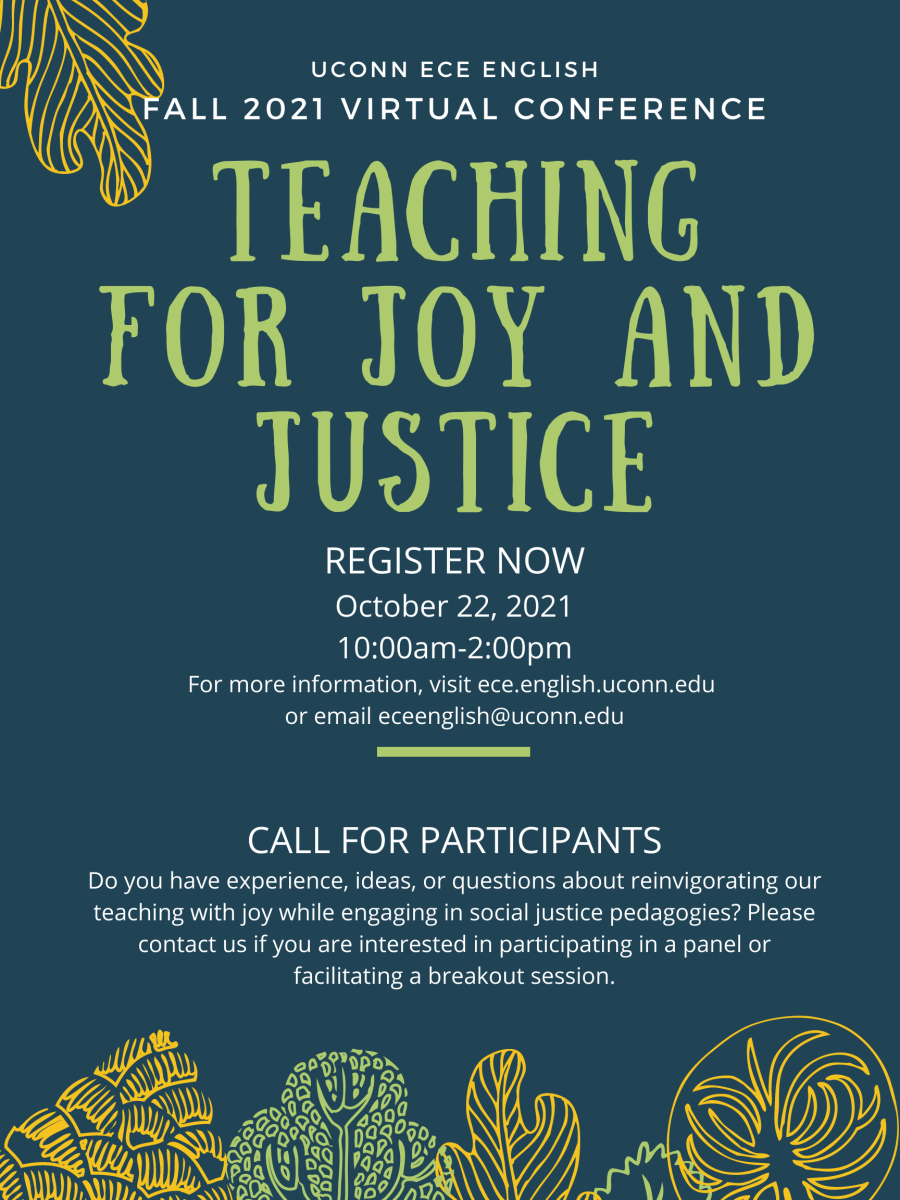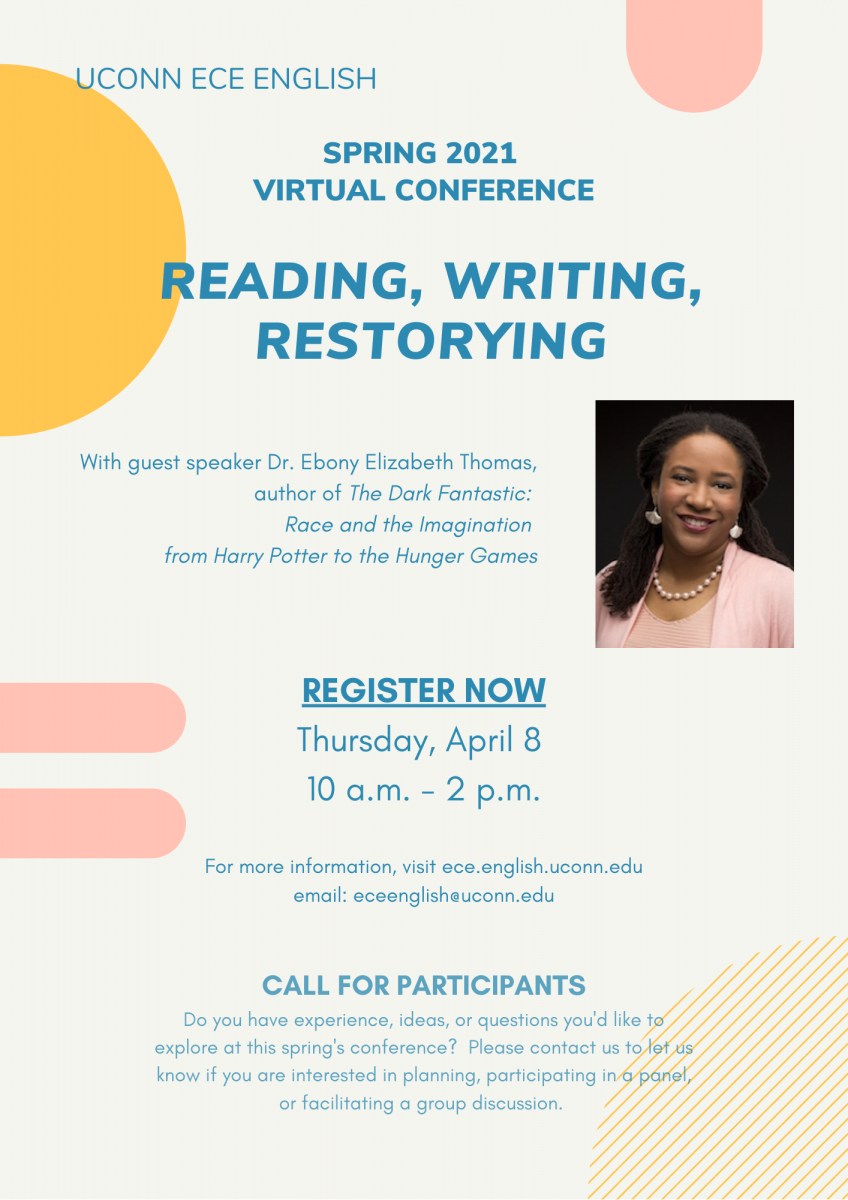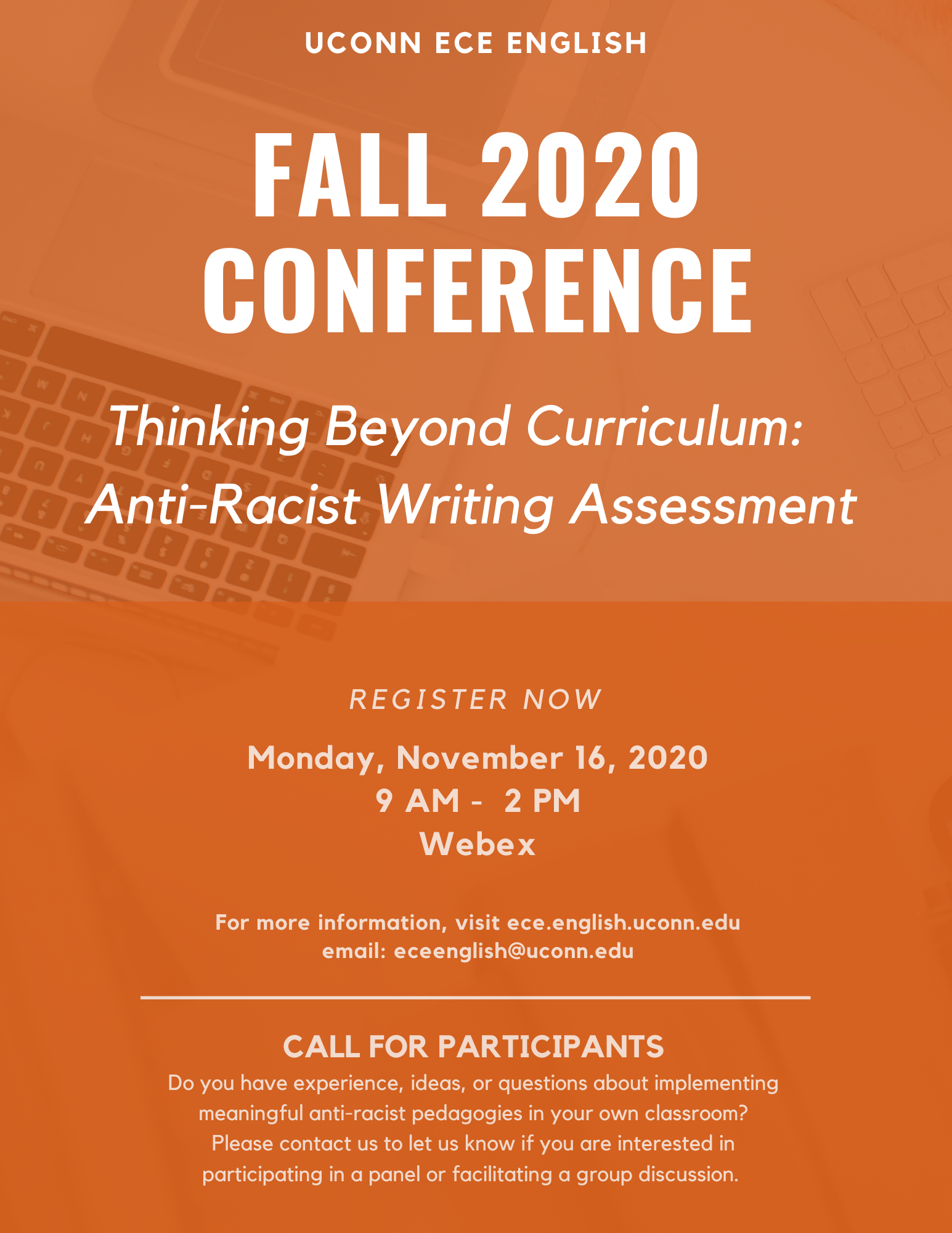Friday, October 22, 2021
10:00 a.m. – 2:00 p.m.
CLICK HERE FOR CONFERENCE MATERIAL ARCHIVE
(You must be logged into your UConn email to access)
Please check out the following blog posts:
As well as Letting Go of Literary Whiteness: Antiracist Literature Instruction for White Students by Carlin Borsheim-Black and Sophia Tatiana Sarigianides and The Antiracist Writing Workshop: How to Decolonize the Creative Classroom by Felicia Rose Chavez.
Teaching for Joy and Justice
 The past eighteen months have brought substantial challenges to our profession. As teachers, we are just beginning to emerge from the heavy cloud of the pandemic to embrace the new normal. Concerns about access to technological tools for distance learning have given way to concerns about navigating a safe, socially-distanced classroom. In this new world, it’s easy to be overcome with frustration from the need to constantly pivot in our teaching while simultaneously implementing an antiracist pedagogy. Additionally, ECE instructors are keenly aware of the pressure to meet the criteria of the new English 1007 course next year.
The past eighteen months have brought substantial challenges to our profession. As teachers, we are just beginning to emerge from the heavy cloud of the pandemic to embrace the new normal. Concerns about access to technological tools for distance learning have given way to concerns about navigating a safe, socially-distanced classroom. In this new world, it’s easy to be overcome with frustration from the need to constantly pivot in our teaching while simultaneously implementing an antiracist pedagogy. Additionally, ECE instructors are keenly aware of the pressure to meet the criteria of the new English 1007 course next year.
Our fall conference seeks to recapture the joy of teaching, to reinvigorate our pedagogy and embrace the beginning of a new era. We will celebrate what we’ve learned from the pandemic and our antiracist work and ask how we can continue to grow as instructors.
In this conference we’ll explore the possibilities which the changeover to the ENGL1007 curriculum affords us by sharing exciting new multimodal assignments; learning how studio pedagogy can foster problem solving through composition; and finding inspiration in fresh takes on the readings we assign in first-year writing. We invite you to lean into the new curriculum with us to discover how it can promote student exploration and reinvigorate our teaching.

